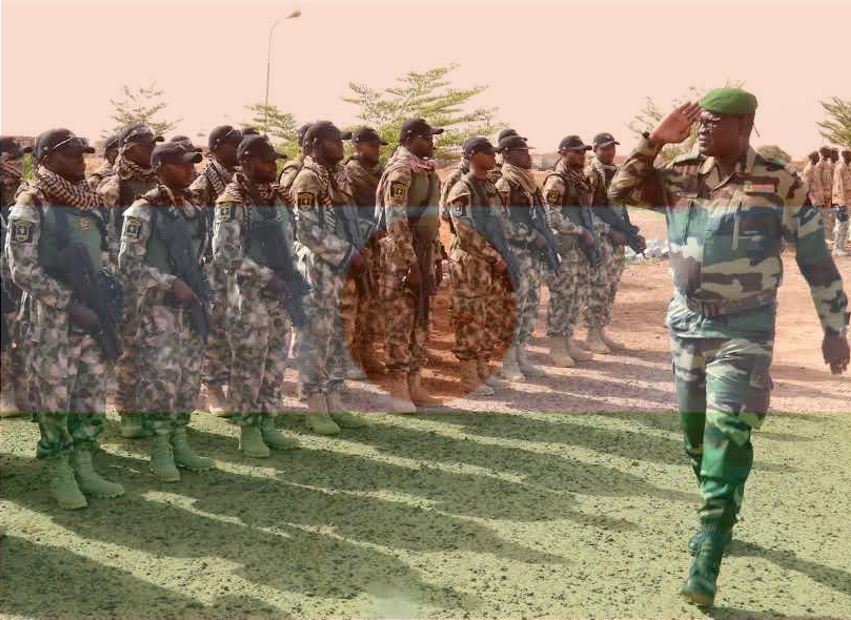The coup in Niger last week was the 13th attempted coup in Africa since 2020, bringing concerns of fresh instability to an already troubled region. Here, NGS Risk Analyst Jason Davies considers what the international reaction to the coup will mean for international travellers to Niger, and suggests some security measures.
Introduction
On 26 July, elements of his guard confined President Mohamed Bazoum to his residence in Niamey, and proclaimed the formation of a military junta called the National Council for the Safeguard of the Homeland (CNSP). Abdourahamane Tchiani, the coup leader, stated that Bazoum’s policies had “not brought security to the country despite heavy sacrifices”, referencing Niger’s ongoing conflict with Islamist militancy groups. Internationally, there has been a ubiquitous and notable (given the language involved) rejection of the junta as an illegitimate body, raising fears about a deterioration in the security situation.
Diplomatic Responses
Following the coup, Niger was suspended from the Economic Community of West African States (ECOWAS) with a trade ban also imposed. In addition to these actions, the bloc stated that the junta had until 06 August to cede control to Bazoum or be subject to “all measures necessary to restore constitutional order”, including the use of force if deemed appropriate. On the same day, Paris warned that attacks on French interests or citizens would be met with an “immediate and intractable” response.
Monetary aid from the European Union, France and the United Kingdom has ceased in the wake of the coup, and it is likely that the United States will do the same if Bazoum is not reinstated. It is also possible that, if relations become completely untenable, Paris and Washington will withdraw their large contingents of troops and equipment from Niger. These have both been engaged in counter-insurgency operations, making Niger one of the most stable nations in the Sahel.
Security Threats to Travellers
External conflict – The statement from ECOWAS confirms the prospect of military action, but this is likely bravado to intimidate the junta. Following the 2021 Mali and 2022 Burkina Faso coups, military action from ECOWAS to restore the legitimate governments was not forthcoming; both states were reprimanded in a similar manner to Niger. However, the possibility of an armed response remains, as Niger is the last bastion of stability in the Sahel, making a cooperative regime essential for nations engaged in regional counter-insurgency efforts. Despite the warnings issued by Paris, no punitive action was taken after its embassy in Niamey was damaged by pro-military demonstrators. Instead, it initiated an evacuation of its own citizens, as well as those from other European nations.
Civil unrest – The warning from France will be perceived as hostile and may be framed by the new government as colonialist. This will likely serve to exacerbate already-present civil unrest, which has seen the burning of flags and the aforementioned attack against the French embassy. Some of these demonstrations have been forcibly repressed by the security forces with the use of tear gas, but it is possible that the overall situation will degenerate into xenophobic violence against foreign nationals and their property. This will probably be opportunistic, seeking to victimise those without private security or protection by their native country.
Internal conflict – The potential withdrawal of Western troops would further destabilise Niger, leading to a greater threat of Islamist violence, particularly in its hitherto unaffected urban centres. In conjunction with an ostensibly pro-Moscow population (as seen by the display of Russian flags in Niamey over recent days), a future Wagner Group presence would not be inconceivable – it is exactly what occurred in Mali, with the group now being responsible for massacres and other human rights abuses. There is also the possibility (albeit small) of a counter-coup by those still loyal to Bazoum, which could see rivalling factions of the Niger Armed Forces fighting over political centres and critical infrastructure.
Conclusion
The long-term consequences of the Niger coup will be shaped by the multitude of diplomatic responses, most of which are attempting to reinstate the old status quo. Although these responses will likely lead to economic and political ostracism, they will have a long-term effect and may give opportunities to malicious elements such as Islamist militancy groups. In the short term, the condemnation of the junta by countries like France will intensify anti-Western sentiment, which will likely manifest as targeted attacks against foreign nationals and those deemed to be collaborators with the prior regime.
Security Advice
Travellers in Niger should consider the following advice when following the coup:
-Register your presence with your country’s embassy and follow all issued directives.
-Ensure you use a vetted security provider for all travel outside of residence, hotel or workplace.
-Organise pick-up from the airport with a pre-arranged, vetted local fixer or security provider.
-Establish pre-arranged itinerary and ensure tracking capability is operable at all stages
-Establish a staff check-in system to give assurance that travellers are safe throughout.
-Regularly monitor local news and social media to be informed of any developments.
-Avoid demonstrations and large gatherings.
-Comply with orders given by security forces.
Author: Jason Davies, Risk Analyst, Northcott Global Solutions
Contact: risk@northcottglobalsolutions.com
Northcott Global Solutions provides risk assessments, tracking, security escorts, personal protective equipment, remote medical assistance and emergency evacuation.
